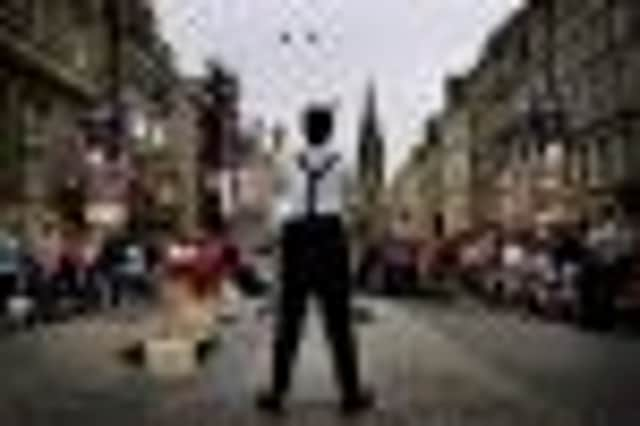Arts blog: A Wicked offer | Manchester vs Edinburgh


Wicked is the 12th longest-running Broadway show in history, won three Tony Awards, and was a big hit on London’s West End too, so expect its month-long run at the King’s Theatre in Glasgow next May to sell out fast.
If you need further incentive to book early, though, a press release just in tells us that “the first 100 costumers will also receive a CD of the Wicked soundtrack, and a cake!” Costumers? I’m guessing they mean customers. But perhaps it’ll help your case if you turn up at the box office with green skin, a black cloak and a pointy hat.
Manchester vs Edinburgh
Advertisement
Hide AdIS it fair or useful to compare the Manchester International Festival and the Edinburgh International Festival? It’s certainly tempting, in the same way that it’s tempting to compare Glasgow and Edinburgh’s film festivals (something which, it’s been claimed, has become a bit of an obsession for this newspaper in recent years. Noted. I’ll have a word.)
Manchester and Edinburgh are a month apart, and their programme launches are close together too (Manchester’s was last week, Edinburgh’s is on Tuesday next week - for our critics’ response, see next Wednesday’s paper).
They are very different creatures, though. Manchester’s signature selling point has always been getting European and North American pop culture figures to raise their game with ambitious, large-scale new work - Damon Albarn’s Monkey: Journey to the West in 2007, the festival’s opening year; Rufus Wainwright’s opera Prima Donna in 2009; Bjork’s multimedia Biophilia launch in 2011. This year’s big talking point is likely to be Massive Attack collaborating with Adam Curtis, creator of the extraordinary documentaries The Power of Nightmares and The Century of the Self. It’s an approach that has worked very well, creating a festival that is widely respected as smart, challenging and populist in equal measures.
On the whole, these kinds of artists are conspicuous by their absence from Edinburgh, a much older and more highbrow sort of festival. There are exceptions – Camille O’Sullivan getting her teeth into Shakespeare’s The Rape of Lucrece last year, for example, instead of her usual diet of Nick Cave, Leonard Cohen and Tom Waits songs. This year, too, has a collaboration between two US pop culture icons which would be a perfect fit in Manchester’s programme. For the most part, though, Edinburgh’s big stars are established figures from the classical, opera, dance and theatre world. Either that, or it is more interested in exploring the popular culture of the Middle East, Asia and South America than in asking The xx if they fancy doing something a bit arty.
This is as it should be. Thanks to the Fringe, Edinburgh in August is not exactly short on pop culture. And it wouldn’t look good for a festival as old and established as the EIF to start borrowing gimmicks from the young English upstart.
Manchester, though, does point out something that may be lacking in Edinburgh. Artistically it occupies a middle ground between the Fringe and the EIF, and yet it offers an experience you won’t find at either – projects that are, perhaps, too populist for the EIF but too expensive for the Fringe.
Advertisement
Hide AdFlux, during its short life back in the late 1990s, had something of Manchester’s ambition, teaming up Spiritualized with composer Steve Martland, and taking Ken Kesey on a trip down memory lane in his Magic Bus . Then there was Triptych. Flux proved too costly, while Triptych came to the end of its natural life. I still miss both. Manchester makes me miss them a little more.